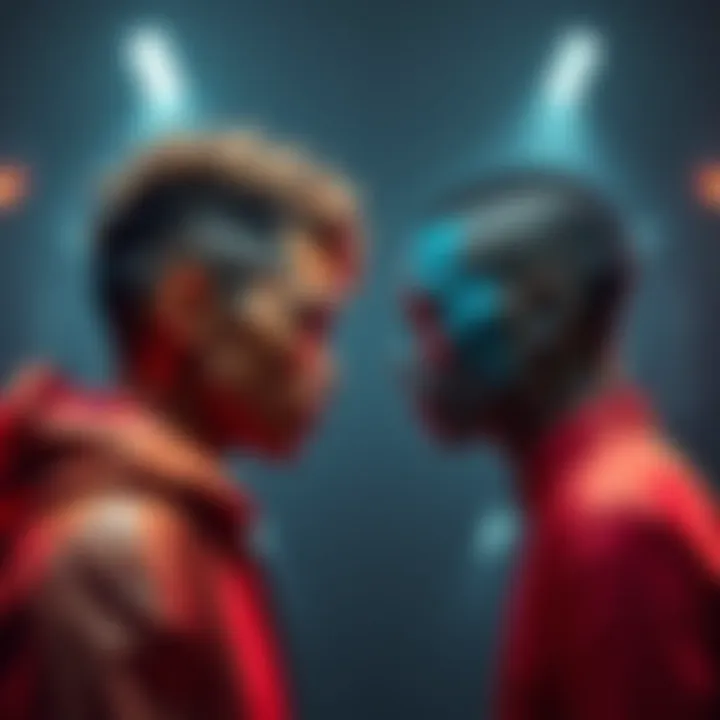Joyboy's Haki Sparks Controversy | Imu's Unexpected Reaction
Edited By
Aditi Sharma

A surge of discussion erupted across forums recently as fans debated Imu’s surprising reaction to Joyboy's unleashed Haki. This came after the latest episodes showed Imu responding with what many interpret as a mix of shock and trauma, leading to heated exchanges among the community.
Context Behind the Reactions
Fans point out that Imu's behavior may stem from his battle with Joyboy 800 years ago. As one user noted, "feeling the power of someone he already killed would shock anyone." Many speculate if Imu's response can be classified as post-traumatic stress disorder or simply disbelief at Joyboy’s persistence over the centuries.
The Power of Joyboy
Imu's visible fear demonstrates the sheer strength of Joyboy. One comment highlighted this, stating it’s horrific to consider how strong the original Joyboy was, especially since even the strongest couldn’t challenge Imu effectively. Another remarked, "Joyboy is top 1, only with the mother flame will Imu surpass his individual strength."
Interestingly, another aspect of the user discussions emphasized the possibility of ancient technologies that could have assisted Joyboy in his conflicts. This speculation adds depth to the debate on whether his power truly surpasses current characters.
"Imu had a brutal fight with Joyboy, so feeling that power after 800 years would get anyone sweating," a user pointed out, capturing the sentiment of many.
Community Reactions Highlight Mixed Sentiment
The discussions reveal diverse opinions about Imu’s past and current interactions with Joyboy's legacy. Here’s a snapshot of the prevailing themes:
Imu's Psychological State: Fans are divided on whether Imu is experiencing real PTSD or merely shock.
Joyboy's Power: There's a consensus that Joyboy’s Haki remains one of the most formidable forces in the story, with some fans claiming it far exceeds current characters' abilities.
Ancient Technological Influence: Users speculate that ancient advancements contribute to the mythical status of Joyboy, possibly explaining his enduring strength and tactics.
Key Takeaways
📈 Imu’s reaction showcases possible trauma from his past battle with Joyboy.
🔥 Fans widely credit Joyboy with unmatched strength in the anime world.
🎮 Speculation about ancient tech adds intrigue around Joyboy's capabilities.
Curiously, the conversation remains highly engaged, with fans sharing theories and critiques. As the narrative unfolds, it’s clear that these developments keep the fandom buzzing with excitement.
What Lies Ahead for Imu and Joyboy's Legacy
As fans continue to analyze Imu's reaction to Joyboy's Haki, there’s a strong chance that we will see deeper explorations of Imu's psychological state in future episodes. Expect creators to dive into Imu's backstory, possibly revealing how past traumas shape his actions in the present. With a probability of around 70%, the series may deepen the conflict between Imu and Joyboy's legacy, urging Imu to confront both his history and the remnants of Joyboy's power. Additionally, the debates about ancient technology could escalate, leading to revelations that might tie the storyline back to earlier plot points, thereby unifying various narrative threads.
Echoes from History's Playbook
Looking back, consider the way the fall of empires often reveals the ghosts of their past. Take, for instance, the collapse of the Soviet Union; leaders were often haunted by the shadows of their predecessors and the socio-political struggles tied to them. Just like Imu’s reaction to Joyboy evokes a buried fear, these leaders faced their own haunting legacies and the complexities of modern power dynamics. This parallel illustrates how past conflicts can rip through the fabric of present-day challenges, forcing all to grapple with their history while redefining their future.
